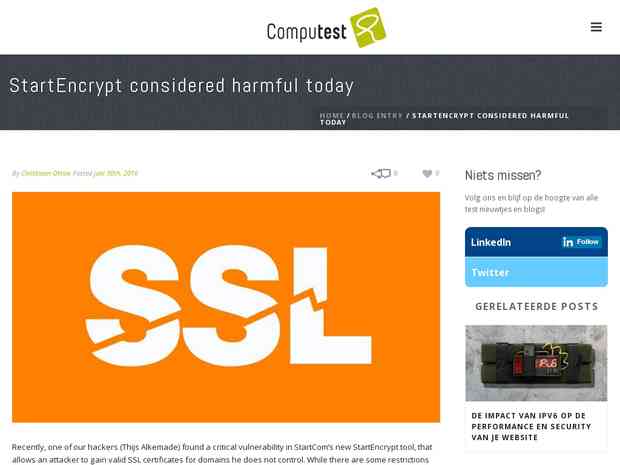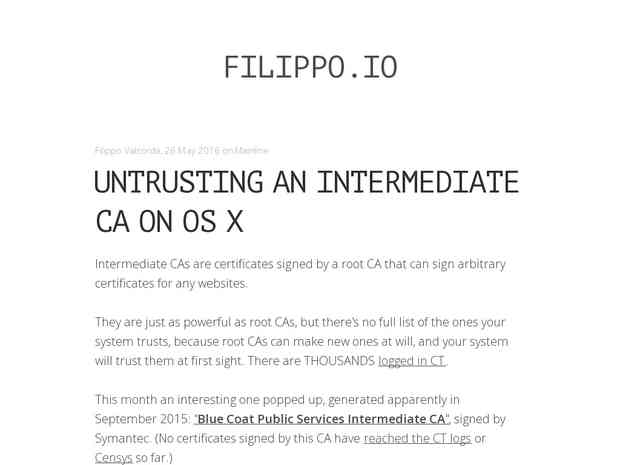WeChat ID
aaronpk_tv
#ssl
-
To whomever tagged this on the Esplanade. This is irresponsible and unsafe advice! One should only use SFTP when transferring files. #ssl

-
-
-
-
Setting up HTTPS with Letsencrypt.org
 I use nginx to serve my HTTPS domains, and Letsencrypt support for nginx is still in beta. I also have a relatively specialized nginx config setup so I don't want any automated script messing with those files. Below are the steps I took to use the letsencrypt tool to generate and automatically renew a certificate for a domain.continue reading...
I use nginx to serve my HTTPS domains, and Letsencrypt support for nginx is still in beta. I also have a relatively specialized nginx config setup so I don't want any automated script messing with those files. Below are the steps I took to use the letsencrypt tool to generate and automatically renew a certificate for a domain.continue reading... -
SwiftOnSecurity (twitter.com)
I patched OpenSSL and due to the nature of the bug had to tell my old SSL cert that we are never, ever, ever getting back together.




